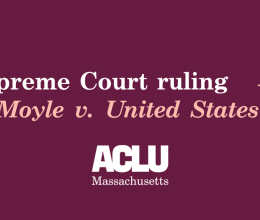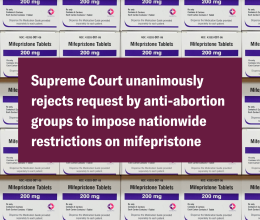
In a significant setback for public health, the U.S. Supreme Court today ruled that the U.S. District Court for the District of Massachusetts likely lacked jurisdiction to review the termination of research grants by the National Institutes of Health (NIH) targeting research on disfavored topics and populations. However, the Supreme Court declined to stay the district court’s conclusion that the NIH’s directives violated the Administrative Procedures Act (APA).
The legal team for the plaintiffs issued the following statement:
“We are very disappointed by the Supreme Court’s ruling that our challenge to the sweeping termination of hundreds of critical biomedical research grants likely belongs in the Court of Federal Claims. This decision is a significant setback for public health. We are assessing our options but will work diligently to ensure that these unlawfully terminated grants continue to be restored.
“However, it is important to note that the Supreme Court declined to stay the District Court’s conclusion that the NIH’s directives were unreasonable and unlawful. This means that NIH cannot terminate any research studies based on these unlawful directives.”
On April 2, the American Civil Liberties Union, the ACLU of Massachusetts, Protect Democracy, and the Center for Science in the Public Interest filed a lawsuit challenging the abrupt cancellations on behalf of individual researchers, along with the American Public Health Association (APHA); the International Union, United Automobile, Aerospace and Agricultural Implement Workers of America (UAW); and Ibis Reproductive Health. Also, joining as co-counsel is Emery Celli Brinckerhoff Abady Ward & Maazel LLP.
The case page can be found here.






